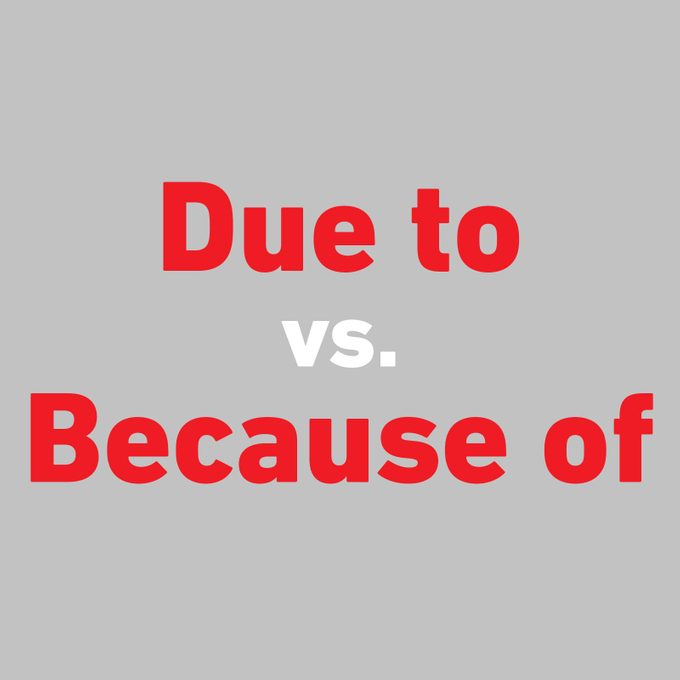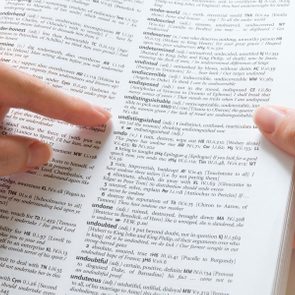Think you can use "because of" and "due to" interchangeably? Think again.

This Is the Real Difference Between “Due To” and “Because Of”

Grammar can be tricky. Just because something sounds right when you say it out loud doesn’t mean it’s technically correct.
Take, for example, the phrases “due to” and “because of.” Both expressions are used to point out a cause-and-effect relationship, but there’s a subtle difference between them—and they shouldn’t be used interchangeably.
Ready for a lesson on when to use “due to” vs. “because of”? Read on, and we’ll go into all the details.
What is the difference between “due to” and “because of”?
The two phrases have different meanings and uses. “Due to” means something happened as a direct result of something else. “Because of” points out the direct cause of an action.
When writing, many people opt for “due to” over “because of.” It’s short and sweet but somehow sounds a bit more formal. Yet according to traditional grammar rules, “due to” is usually not the right choice.
When should “due to” and “because of” be used?
Grammatically speaking, “due to” should be used only as an adjective, a word or phrase used to describe a noun. And it should come after a noun in the sentence. For instance, you could say: “The cancellation was due to rain.” In this sentence, “cancellation” is a noun, and “due to” is the adjective describing it.
“Because of,” on the other hand, functions as an adverb, meaning it should modify only verbs. So you may want to say: “The game was canceled because of rain.” Here, “was canceled” is a verb phrase, which makes “because of” the correct choice.
Is there an easy way to remember when to use “due to” and when to use “because of”?
An easy way to remember this grammar rule is that “due to” can be replaced by “caused by,” but “because of” cannot. Try it. You can say, “The cancellation was due to rain” or “The cancellation was caused by rain.” But you can’t say, “It was canceled caused by rain” instead of “It was canceled because of rain.” It just doesn’t make sense.
Here are a couple more examples to help you visualize the difference:
Right: The business failed because of its poor location.
Wrong: The business failed due to its poor location.
Right: The business’s failure was due to its poor location.
Wrong: The business’s failure was because of its poor location.
Does it really matter?
Language is constantly evolving, and plenty of “experts” believe that the “due to” vs. “because of” rule isn’t relevant anymore. In everyday speech, you probably don’t need to feel self-conscious about using the “wrong” one, but if you’re corresponding with a grammar stickler (say, a teacher, writer, editor or a word nerd like me), you might want to play it safe and keep this rule in mind. I mean, no one likes to be mocked because of a grammar mistake!
Why trust us
At Reader’s Digest, we’re committed to producing high-quality content by writers with expertise and experience in their field in consultation with relevant, qualified experts. We rely on reputable primary sources, including government and professional organizations and academic institutions as well as our writers’ personal experience where appropriate. We verify all facts and data, back them with credible sourcing and revisit them over time to ensure they remain accurate and up to date. Read more about our team, our contributors and our editorial policies.
Sources:
- American Journal Experts: “Editing Tip: ‘Due To’ and ‘Because Of’”
- E-GMAT: “‘Due to’ Vs ‘Because of’”
- Speak Confident English: “How to Use ‘Because Of’ vs ‘Due To’”





















